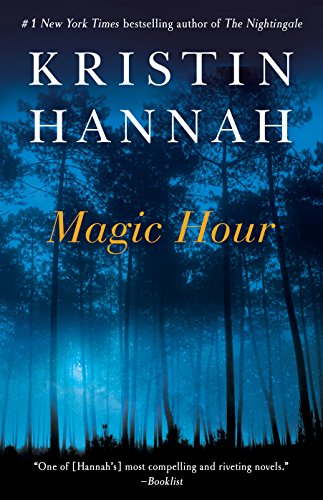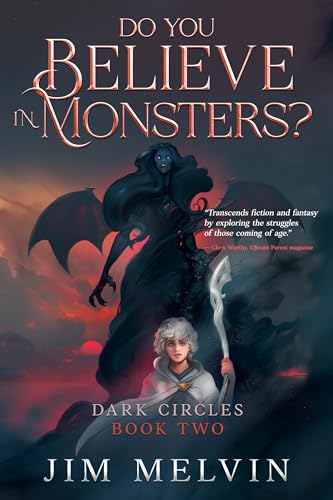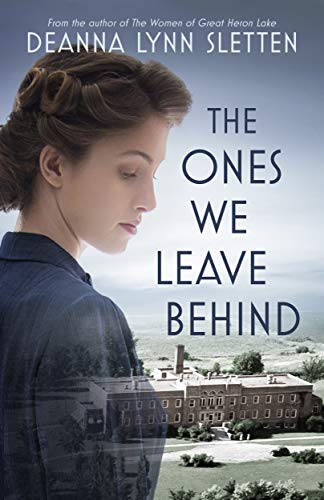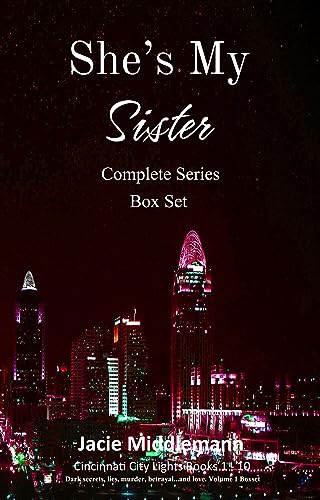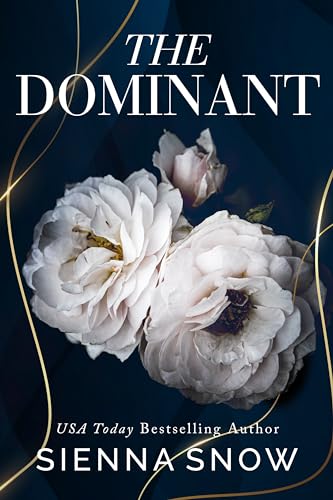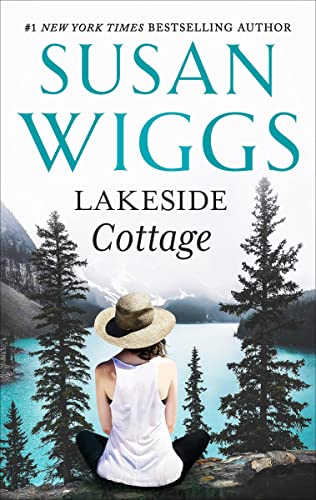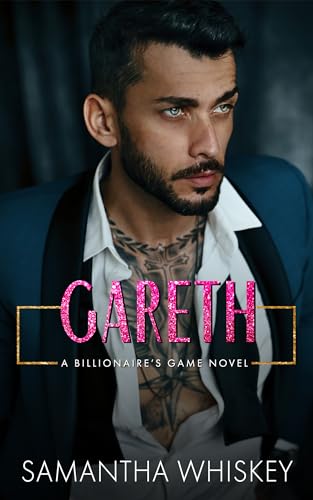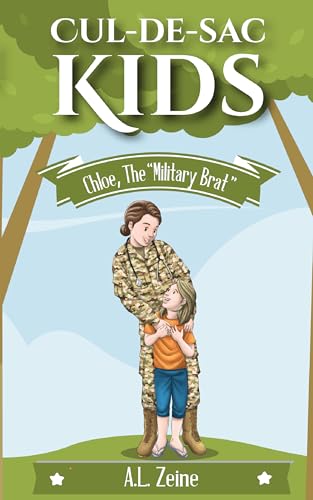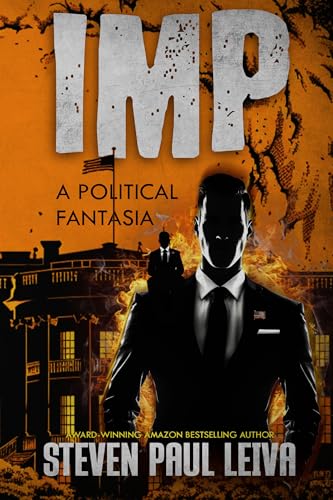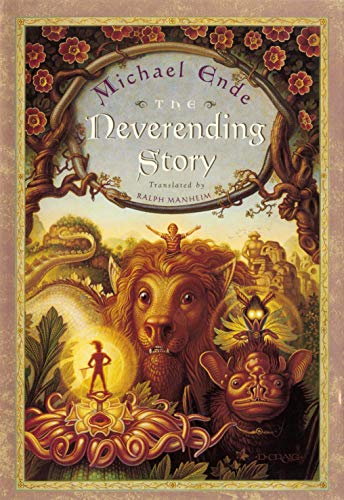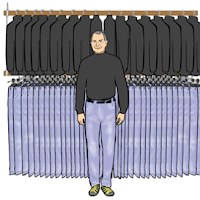- Amazon will release its 2010 Q2 earnings report after the stock market closes Thursday, July 22;
- I will be tuning into the associated conference call that will take place that day at 5 pm Eastern and will be webcast at http://phx.corporate-ir.net/phoenix.zhtml?p=irol-eventDetails&c;=97664&eventID;=3215186; and
- It is my own personal speculation, as I said yesterday, that Amazon’s “press release is tantamount to raising its guidance….”
Books
Kindle Nation Daily Free Book Alert, Tuesday, July 20: It’s Page-Turner Tuesday, Plus Paul Levine’s Jake Lassiter Mystery TO SPEAK FOR THE DEAD (Today’s Sponsor), and Links to Over a Hundred Free Promotional Kindle Store Titles
To Speak for the Dead – An E-Book with All Proceeds to Charity
– An E-Book with All Proceeds to Charity
“TO SPEAK FOR THE DEAD” introduced the world to Jake Lassiter, the linebacker-turned-lawyer with a hard bark and a tender heart. If you’ve never met him, now is your chance. If you’ve read all the Lassiter books, now is the time to revisit an old friend.
On the 20th anniversary of hardcover publication, I’ve made the courtroom thriller available as an e-book for the astonishing price of $2.99. Yep, less than your double mocha latte, and far fewer calories.
Here’s the story. Defending a surgeon in a malpractice case, Jake Lassiter begins to suspect that his client is innocent of negligence…but guilty of murder. Add a sexy widow, a deadly drug, and a grave robbery to the stew, and you have the recipe for Miami’s trial of the century.
I’m donating all proceeds of the book to a cause that’s very special to me: the Four Diamonds Fund, which supports cancer treatment for kids at Penn State Hershey Children’s Hospital. More about that below.
Over the next year, all seven Lassiter books will be available as e-books on the page where my Kindle titles are listed. Even if you don’t own an e-reader, you can download the book to your laptop, desktop, iPad, iPhone, BlackBerry or Android device
. So, if you’d like a “breathlessly exciting” read (Cleveland Plain Dealer) or a “genuinely chilling” one (Washington Post), please give it a try.
Each day’s list is sponsored by one paid title, and of course, we encourage you to support our sponsors. Some of these paid titles will be from our own Kindle Nation Daily press (an imprint of Harvard Perspectives Press), while others will be paid titles from other authors and publishers.
Interested in learning more about sponsorship? Just click on this link for more information:
Click here to sponsor a Kindle Nation Daily Free Book Alert!
* * *
Free Listings!
by Sharyn McCrumb – 4.4 out of 5 stars (38 customer reviews)
Drama and the resiliency of the human spirit on the NASCAR circuit.
by Don Brown – 5.0 out of 5 stars (4 customer reviews)
Christian suspense fiction from the author of the Navy Justice series.
From Booklist: Ventura County probation officer, law student, and single mom Carolyn Sullivan, first introduced in Sullivan’s Law (2004), has a truly sinister criminal as a client this time. Sullivan is known throughout the county for her remarkable ability to get perps to talk–about why they did the heinous things they did. Meanwhile, it’s Carolyn’s brother, Neil, who causes her the most anxiety; he’s an artist and a dreamer, which Carolyn finds endearing, but he also lives dangerously close to the edge, which unnerves her. Too close, it turns out, when he calls Carolyn with the news that his girlfriend was found dead in his pool. Sure, he’s eccentric, but is he a killer? Carolyn has been protective of Neil since their father’s death, but when a family secret is revealed, she begins to doubt how well she really knows him. Still, she resolves to help him. This is a bit of a departure for Rosenberg, more psychological thriller than police procedural, but the sense of authenticity is still present, and the author’s ability to generate narrative drive still holds readers. A dark, perilous, and compelling ride. Mary Frances Wilkens
Copyright © American Library Association. All rights reserved
From Publishers Weekly
Magazine junkies who remember the original Jane will devour this cheeky roman à clef by Jane Pratt’s former assistant of nine years. Unlike Anna Wintour’s alter ego in The Devil Wears Prada, Yampolsky’s alter ex-boss is an off-the-rack heroine. Raised on a commune by inattentive hippie parents, Georgia girl Jill White was an outcast at her New England prep school before a predictably eye-opening stint at Bennington. After Jill descends on New York, a succession of magazine gigs leads her to editing Cheeky (i.e., ’90s grrrl glossy Sassy) and, eventually, Jill. At that eponymous publication, idealistic Jill goes up against bottom-line obsessed Nestrom Media (a thinly veiled Condé Nast). Fictionalizations of Pratt’s personal and professional moments as editor-in-chief add frisson: Sassy‘s skewering profile of actress Tiffani-Amber Thiessen becomes Cheeky‘s roasting of “Kelli Hyer-Burke”; there are plenty of other cameos. In the end, Jill comes off as a sometimes selfish but mostly likable woman who gets beat by corporate magazine land. Survivors of the era, however, may question Jill’s claim that she “coined the term grunge.”
Copyright © Reed Business Information, a division of Reed Elsevier Inc. All rights reserved.
Click here for a complete listing of our updated free promotional titles in the Kindle Store as of July 20!
Here’s a list of the categories in today’s Free Book Alert:
Nonfiction/Leadership/Change/Reference/Essay
Christian Spirituality and Christian Fiction
(Sponsorship can take a number of different forms and implies no endorsement either of or by Kindle Nation or a sponsoring company or individual.)
TIPPING POINT: Amazon Announces Tripling of Kindle Hardware Sales, Says Kindle Books Are Now Outselling Hardcovers
By Stephen Windwalker
Editor of Kindle Nation Daily ©Kindle Nation Daily 2010
- Amazon is now selling more Kindle ebook copies than hardcover books across the board. It was huge news in September when a single bestseller, Dan Brown’s The Lost Symbol
, showed more Kindle sales than hardcover sales. Now it’s happening for all hardcovers, and there’s no way around the fact that, with Amazon’s status as the largest bookseller in the world, this is a major event in the world of book publishing. This development has occurred “even while our hardcover sales continue to grow,” said Jeff Bezos, Founder and CEO of Amazon.com. Amazon said that in the past three months it has sold 143 Kindle books for every 100 hardcover copies sold, and no free ebooks were counted in that tabulation. The ratio jumped to an astonishing 180:100 for the month of June.
- “We’ve reached a tipping point with the new price of Kindle–the growth rate of Kindle device unit sales has tripled since we lowered the price from $259 to $189,” said Bezos. Amazon also said that the Kindle unit sales had increased each month during the second quarter, and also showed year-over-year increases in each month.
- Amazon gave the most specific data it has yet provided concerning its market share of the overall ebook content market by announcing that, of the 1.14 million ebooks sold through July 6 by author James Patterson, 867,881 were Kindle books. So Amazon has had a 76.1 percent market share of James Patterson’s ebook sales, and it is worth noting that the majority of ebooks offered in the Kindle Store are not available in the iBooks Store or anywhere else.
- In another indication that Kindle content must be selling very well on the iPad and the half dozen other devices with Kindle Apps, Amazon said that its overall ebook sales for the first half of 2010 were more than triple what they were in the first half of 2009.
- In addition to Patterson’s crossing of the million-ebook threshold, Amazon said that several other authors — Charlaine Harris, Stieg Larsson, Stephenie Meyer, and Nora Roberts — have sold over 500,000 Kindle ebooks each. Kindle Nation Daily apparently jumped the gun in estimating Larsson’s sales at being over a million before July 6, but his ebook sales are very close to that seven-figure level if they have not already succeeded it.
Kindle Device Unit Sales Accelerate Each Month in Second Quarter; New $189 Price Results in Tipping Point for GrowthAmazon.com Now Selling More Kindle Books Than Hardcover Books
“We’ve reached a tipping point with the new price of Kindle–the growth rate of Kindle device unit sales has tripled since we lowered the price from $259 to $189,” said Jeff Bezos, Founder and CEO of Amazon.com. “In addition, even while our hardcover sales continue to grow, the Kindle format has now overtaken the hardcover format. Amazon.com customers now purchase more Kindle books than hardcover books–astonishing when you consider that we’ve been selling hardcover books for 15 years, and Kindle books for 33 months.”
Kindle offers the largest selection of the most popular books people want to read. The U.S. Kindle Store now has more than 630,000 books, including New Releases and 106 of 110 New York Times Best Sellers. Over 510,000 of these books are $9.99 or less, including 75 New York Times Best Sellers. Over 1.8 million free, out-of-copyright, pre-1923 books are also available to read on Kindle.
Recent milestones for Kindle books include:
- Over the past three months, for every 100 hardcover books Amazon.com has sold, it has sold 143 Kindle books. Over the past month, for every 100 hardcover books Amazon.com has sold, it has sold 180 Kindle books. This is across Amazon.com’s entire U.S. book business and includes sales of hardcover books where there is no Kindle edition. Free Kindle books are excluded and if included would make the number even higher.
- Amazon sold more than 3x as many Kindle books in the first half of 2010 as in the first half of 2009.
- The Association of American Publishers’ latest data reports that e-book sales grew 163 percent in the month of May and 207 percent year-to-date through May. Kindle book sales in May and year-to-date through May exceeded those growth rates.
- On July 6, Hachette announced that James Patterson had sold 1.14 million e-books to date. Of those, 867,881 were Kindle books.
- Five authors–Charlaine Harris, Stieg Larsson, Stephenie Meyer, James Patterson, and Nora Roberts–have each sold more than 500,000 Kindle books.
Readers are responding to Kindle’s uncompromising approach to the reading experience. Weighing 10.2 ounces, Kindle can be held comfortably in one hand for hours, has an e-ink display that is easy on the eyes even in bright daylight, has two weeks of battery life, lets you buy your books once and read them everywhere–on your Kindle, Kindle DX, iPad, iPod touch, iPhone, Mac, PC, BlackBerry, and Android-based devices–and has free 3G wireless with no monthly fees or annual contracts–all at a $189 price.
In praise of indie bookstores: Just bring your Kindle to the nearest brick and mortar bookstore today for…
(The following post appeared in slightly different form at Kindle Nation Daily and Teleread in June 2009. I republish it here as an increasing number of us continue to reflect on the possibility that we could be in the last days of brick-and-mortar bookstores unless someone figures out soon how to save them. For more about the future of brick-and-mortar bookstores, I recommend Mike Shatzkin’s recent post, Where will bookstores be five years from now?
By Stephen Windwalker, editor of The Kindle Nation
I’m sure I’m not the only one who is sometimes fascinated by the issues that pop up, among my fellow authors and readers, as reasons for staying away from new technologies such as the Kindle and even print-on-demand publishing services such as those provided by Amazon’s CreateSpace.com and Ingram’s Lightning Source.
Some of us are Luddites, some of us are anti-corporate (so we would prefer Random House, right?), some of us are skeered to death of being branded as DIY self-publishers, and….
And here’s the one for which I, as a former brick-and-mortar indie bookseller and member of the American Booksellers Association, have the most patience:
 We want to support indie bookstores and we want to make it easy for our readers to find our books on the shelves in indie bookstores. Real bookstores. Not Amazon. Certainly not the Kindle store. Not chains. Okay, maybe chains if they serve good coffee.
We want to support indie bookstores and we want to make it easy for our readers to find our books on the shelves in indie bookstores. Real bookstores. Not Amazon. Certainly not the Kindle store. Not chains. Okay, maybe chains if they serve good coffee.
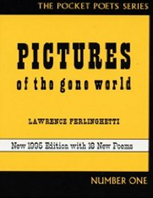 Of course. I love indie bookstores and the people who run them and work at them. I am well aware of the forces that have conspired against them over the past few decades, and it is true that I cannot help but notice certain parallels between the indie bookselling trade and the traditional newspaper business. These parallels may even include the prospect that changes in technology are making it inevitable that indie bookstores and traditional newspapers will share the same fate. But those of us who want to do all we can to keep indie bookstores and traditional newspapers alive are driven in most cases by honorable motivations.
Of course. I love indie bookstores and the people who run them and work at them. I am well aware of the forces that have conspired against them over the past few decades, and it is true that I cannot help but notice certain parallels between the indie bookselling trade and the traditional newspaper business. These parallels may even include the prospect that changes in technology are making it inevitable that indie bookstores and traditional newspapers will share the same fate. But those of us who want to do all we can to keep indie bookstores and traditional newspapers alive are driven in most cases by honorable motivations.
That being said, I for one want to see signs from the indie booksellers themselves that they are doing all that they can, and being as imaginative as possible, in an effort to find ways to appropriate the newest and most interesting technologies to connect more readers with more books in more customer-centered ways. One example that tickles me: a favorite local bookstore of mine (and one that like my tiny publishing company may also have drawn its name from a venerable institution from my undergraduate days) is offering inexpensive delivery of all local orders, using emissions-free vehicles, in partnership with MetroPed, “Boston’s human-powered delivery service.”
And here’s another: another long-time bookstore fave o’ mine, Vermont’s Northshire Bookstore, has installed an Expresso Book Machine to offer almost-immediate in-store printing and binding of an incredible array of titles including thousands of titles from On Demand Books, thousands more becoming available from the 8,000 publishing partners of Ingram’s Lightning Source POD facility, and — I especially love this one — a growing catalog of local-interest titles offered by Northshire’s in-house Shire Books imprint. (Yes, this is how Lawrence Ferlinghetti would have begun offering his own Pictures of the Gone World and other City Lights Books titles at the North Beach store if the technology has existed back in 1955).
So, this is great, right? Despite the fact that the Expresso machinery takes up almost as much space as some entire bookstores and looks a lot like — am I dating myself much here? — Univac (or the latest invention of Will Farrell’s unfortunate recent character), it is an interesting step toward the Long Tail and new-tech delivery systems for indie bookstores. I’ve been following the Expresso “ATM for books” concept and narrative since mainstream publishing industry veteran and chronicler Jason Epstein became associated with the concept a few years back. And part of what is exciting here is that Northshire is — among its fellow independent booksellers — one of the most respected bookshops in the country. I met founder Ed Morrow through ABA and the New England Booksellers Association decades ago and throughout my own bookselling career I never turned down an opportunity to pick their or their staffers’ brains about what might work in my store.
 But the Expresso-at-Northshire experiment got me thinking about another potentially exciting way in which indie bookstores could welcome, and profit from, new technologies.
But the Expresso-at-Northshire experiment got me thinking about another potentially exciting way in which indie bookstores could welcome, and profit from, new technologies.
Okay, take a leap with me here. This idea involves indie booksellers actually marketing their stores to Kindle owners (or substitute another ebook brand here, provided that certain compatibilities exist) and inviting the Kindlers to bring their Kindle units into their neighborhood bookstores. If I haven’t lost you there already, here’s the concept:
- Imagine all the books that exist or ever will exist in the public domain.
- Add all the books that are or ever will be available through POD services of any kind including CreateSpace, Lightning Source, On Demand Books, and the Espresso.
- Add all the other digital books or documents that any bookstore might ever be able to acquire or offer — whether as a college bookstore agregating instructor’s packets and lecture notes or a store like Northshire creating its own POD-and-digital imprint.
- Render this entire (and, may I say, humongous?) catalog compatible with eBook readers in a copyright-sensitive but DRM-free format that, like PDF files for the new Kindle DX, do not require an extra data-conversion step.
- Allow all booksellers from Amazon to indie brick-and-mortar shops and chains to offer as much as possible of this entire catalog in both digital ebook and digital print-on-demand as well as other print modalities.
- Monetize the entire catalog with prices ranging from 49 cents for public-domain to $9.99 for bestsellers (and more when justifiable for technical books, etc.), a sensible royalty structure back to publishers (including Amazon Digital Services), rights holders, and authors, and a point-of-sale slice for pysical stores.
- Provide apps to integrate the entire process not only with Kindle owners but with the iPhone, the iPod touch, the Blackberry, netbooks, laptops, and every other device imaginable.
 Invite device owners to bring their Kindles or other readers into bookstores to browse and zap content right onto their hardware via USB, wireless, etc., and offer specific promotions (such as first-day in-store only downloads of the latest Dan Brown) to get readers into the habit of bringing their devices in.
Invite device owners to bring their Kindles or other readers into bookstores to browse and zap content right onto their hardware via USB, wireless, etc., and offer specific promotions (such as first-day in-store only downloads of the latest Dan Brown) to get readers into the habit of bringing their devices in. - Outfit the in-store operation hardware-wise with a user-friendly “music kiosk” like station that requires little or no staffing.
- Offer a BOGO deal whenever a customer comes to the counter to buy a print-edition (with appropriate back-end monetization: “If you’d like to step over to the kiosk with this coupon that expires in 30 days you can also get a digital copy of this book for an additional 99 cents.”
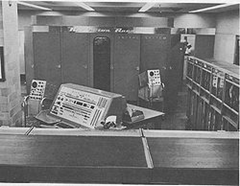 I don’t know if it would catch on like the Univac thing did. Sometimes it seems as if it is the nature of e-commerce these days to drive us all away from the local toward the global, and certainly Amazon is well-positioned to take advantage of this momentum.
I don’t know if it would catch on like the Univac thing did. Sometimes it seems as if it is the nature of e-commerce these days to drive us all away from the local toward the global, and certainly Amazon is well-positioned to take advantage of this momentum.
But there is great value in local, and indie booksellers and their loyalists are working hard at the process of trying to figure out how to remain viable. If it makes any sense for them to install interesting monstrosities like the Expresso Book Machine in their stores to sell digital p-books, than it has to make sense to figure out and implement a process to sell digital e-books like the one I have suggested here. I realize that there is a high ideological threshold, which may not be crossed easily, preventing indie booksellers from entering into a partnership with Amazon. Maybe it will be easier for them to jump into bed with someone more romantic, like Google. Or maybe, if Barnes and Noble or Borders implement this idea themselves with their own stores and their own ereaders, they would prefer to watch.
But imagine….
Imagine all the booksellers, living life in peace….
Pricing to Fail: Case Studies in Dumb Pricing – Despite Some Bestsellers at $12.99, Agency Model House of Cards May Already Be in Danger
By Stephen Windwalker, Editor of Kindle Nation Daily – Originally posted 7.19.2010
- Click here for related posts
- Click here to see underlying statistical analysis (Based on U.S. Kindle Store book catalog as of 7 a.m. ET 7.18.2010)
I did a fresh price check over the weekend on Amazon’s overall Kindle catalog and the composition of the 100 top paid bestsellers list in the Kindle Store, after 17 days’ experience with major structural changes in pricing and royalties for the Kindle’s Digital Text Platform (DTP), and this and other data is beginning to suggest that we may see the collapse of the big book publishers’ “agency model” before it is time to renegotiate contracts early in 2011.
First, interesting trends at both ends of the Kindle Store pricing spectrum:
- Amazon has mandated that indie publishers must price ebooks between $2.99 and $9.99 to qualify for generous 70 percent toyalties, and the overall percentage of titles in this price range continues to increase very gradually but steadily: from 56.96% on May 22 to 57.22% on June 14 to 57.32% on June 26 to 57.66% on July 18.
- All of this migration has come from a relative decline in ebook titles priced at $10 and up, from 19.16% on May 22 to 18.82% on June 14 to 18.52% on June 26 to 18.09% on July 18.
- Not surprisingly, the fastest growing price point in the Kindle Store is for ebooks priced at $2.99. As a percentage of the whole this segment has grown by 11.06% since June 26 and by 15.56% since May 22.
- Any expected decline in the percentage of titles priced at under $2.99 has yet to occur, as that subset has grown from 23.88% on May 22 to 23.96% on June 14 to 24.16% on June 26 to 24.24% on July 18.
As for the composition of the 100 top paid bestsellers list in the Kindle Store, there is one shift that could be dramatic if it holds over the next few weeks. I commented in our last price-check post that Kindle readers are showing an increasing willingness to pay up to $12.99 for new full-length books by established bestselling authors, and this time the number of Top 100 jumped from 24 to 30 since June 26, including 19 in the top 50.
Meanwhile, the number of Top 100 bestsellers priced below $2.99 fell from 13 to 7 as many of the authors and publishers of popular low-priced ebooks raised their prices to $2.99 and above to take advantage of the new 70 percent royalty option. (As to why more authors and publishers haven’t conformed yet to the $2.99 minimum price in order to qualify for the 70 percent royalty, there are some interesting issues that we’ll try to address in a separate post at Kindle Nation Daily in the next day or two).
However, Kindle readers continue to reject agency model new releases (and other ebooks) priced above $12.99. Although the number of Top 100 titles in the $13-and-up range grew from 2 to 3 since June 26, the far more significant tell is that there were zero $13-and-up titles among the top 74 bestsellers.
Even if significant numbers of Kindle readers are willing to hold their noses and pay $11.99 and $12.99 for big-name authors, the fact that the relative number of Kindle Store ebooks in all of the $10-and-up price ranges is declining steadily and significantly suggests that the agency model publishers are seeing exactly what Jeff Bezos says Amazon is seeing. Referring to a decline in market share for agency model publishers, Bezos said in a Fortune.com article at the end of June that Amazon has already seen a significant “share shift from one group of publishers to this other group of publishers.”
Since May 22, the relative decline in $10-and-up listings as a portion of the whole is dramatic:
- the percentage of titles priced from $10 to $12.99 has fallen 4.70%;
- the percentage of titles priced from $13 to $14.99 has fallen 4.12%; and
- the percentage of titles priced at $15 and up has fallen 5.82%.
When five of the Big Six publishers unveiled their campaign to push back against Amazon’s mastery of the ebook domain early this year with the launch of the agency model scheme to fix or mandate prices, they clearly saw Apple as the white knight that would allow them to rearrange the ebook pricing battlefield to their liking.

But now Apple is beset with a growing number of problems of its own, and we may even be seeing signs that Steve Jobs’ company doesn’t quite have the focus or attention span to sustain, for the long haul, its iBooks leap into the world of bookselling: among the “Top Free Apps” for the iPad, the iBooks App has sunk like a stone from #1 to the #8-#10 range in the past week. And, of course, once the serious readers among new iPad owners respond to Apple’s heavy marketing that they should download the iBooks app, they quickly discover that finding the books they want to read there can be a frustrating challenge. Indeed, there are increasing signs that — on the iPad, at least — the Kindle Store with its 642,000-plus ebook titles may already be #1 in actual iPad ebook transactions and dollars transacted, ahead of iBooks with fewer than 100,000 titles (including as many as half of them free public domain listings).
If iBooks can’t even outsell Kindle Store ebooks on the iPad, it wouldn’t require a recall, a mass shipment of new cases, or even a public “iBooksFail” pronouncement. But we might see an iBooks shuffle into back-burner status in six months or so when it will be time to negotiate new contracts with the agency model publishers.
Of course, even in the extremely unlikely event that Jeff Bezos were to back up his broadbrush pronouncements with the public disclosure of sales figures, the agency model publishers are likely to be the last to know how much ebook market share they are losing to titles in the sub-$10 price range, since the greatest growth there appears to be coming from indie publishers and established as well as emerging direct-to-Kindle authors who appear not to be on the “big” publishers’ radar.
- 20,621 Titles Priced “Free” (3.21%) – 0 of Top 100 Paid Bestsellers
- 5,623 Titles Priced from a Penny to 98 Cents (0.88%)
– 0 of Top 100 Paid Bestsellers
- 63,034 Titles Priced at 99 Cents (9.81%)
– 4 of Top 100 Paid Bestsellers
- 66,515 Titles Priced from $1 to $2.98 (10.35%)
– 3 of Top 100 Paid Bestsellers
- 21,689 Titles Priced at $2.99 (3.38%)
– 0 of Top 100 Paid Bestsellers
- 122,902 Titles Priced from $3 to $4.99 (19.13%)
– 4 of Top 100 Paid Bestsellers
- 162,023 Titles Priced from $5 to $9.98 (25.22%)
– 28 of Top 100 Paid Bestsellers
- 63,892 Titles Priced at $9.99 (9.94%)
– 28 of Top 100 Paid Bestsellers
- 8,032 Titles Priced from $10 to $12.99 (1.25%) – 30 of Top 100 Paid Bestsellers
- 14,485 Titles Priced from $13 to $14.99 (2.25%) – 3 of Top 100 Paid Bestsellers
- 93,760 Titles Priced at $15 and Up (14.59%) – 0 of Top 100 Paid Bestsellers
Here’s where we stood with the 623,077 book titles in the Kindle Store as of 7 a.m. EDT on June 26, 2010:
- 20,636 Kindle Books Priced “Free” (3.31%)
- 5,217 Titles Priced from a Penny to 98 Cents (0.84%)
- 60,370 Kindle Books Priced at 99 Cents (9.69%)
- 64,314 Titles Priced from $1 to $2.98 (10.32%)
- 18,935 Kindle Books Priced at $2.99 (3.04%)
- 119,484 Kindle Books Priced from $3 to $4.99 (19.18%)
- 157,562 Titles Priced from $5 to $9.98 (25.29%)
- 61,153 Titles Priced at $9.99 (9.81%)
- 8,132 Titles Priced from $10 to $12.99 (1.31%)
- 14,177 Titles Priced from $13 to $14.99 (2.28%)
- 93,097 Titles Priced at $15 and Up (14.94%)
Here’s where we stood with the 609,975 book titles in the Kindle Store as of 5 p.m. EDT on June 14, 2010:
- 20,589 Kindle Books Priced “Free” (3.38%)
- 5,041 Titles Priced from a Penny to 98 Cents (0.83%)
- 58,624 Kindle Books Priced at 99 Cents (9.61%)
- 80,197 Kindle Books Priced from $1 to $2.99 (13.15%)
- 115,891 Kindle Books Priced from $3 to $4.99 (19.00%)
- 155,056 Titles Priced from $5 to $9.98 (25.42%)
- 59,797 Titles Priced at $9.99 (9.80%)
- 8,173 Titles Priced from $10 to $12.99 (1.34%)
- 14,105 Titles Priced from $13 to $14.99 (2.31%)
- 92,500 Titles Priced at $15 and Up (15.16%)
Here’s where we stood with the 587,104 book titles in the Kindle Store as of 5 p.m. EDT on May 22, 2010:
- 20,584 Kindle Books Priced “Free” (3.51%)
- 4,830 Titles Priced from a Penny to 98 Cents (0.82%)
- 55,901 Kindle Books Priced at 99 Cents (9.52%)
- 76,054 Kindle Books Priced from $1 to $2.99 (12.95%)
- 109,706 Kindle Books Priced from $3 to $4.99 (18.69%)
- 151,509 Titles Priced from $5 to $9.98 (25.81%)
- 56,059 Titles Priced at $9.99 (9.55%)
- 7,700 Titles Priced from $10 to $12.99 (1.31%)
- 13,803 Titles Priced from $13 to $14.99 (2.35%)
- 90,958 Titles Priced at $15 and Up (15.49%)
Here’s where we stood with the 511,759 book titles in the Kindle Store as of 9 a.m. EDT on May 7, 2010:
- 20,601 Kindle Books Priced “Free” (4.03%)
- 4,857 Titles Priced from a Penny to 98 Cents (0.94%)
- 53,936 Kindle Books Priced at 99 Cents (10.54%)
- 73,987 Kindle Books Priced from $1 to $2.99 (14.46%)
- 101,014 Kindle Books Priced from $3 to $4.99 (19.74%)
- 91,871 Titles Priced from $5 to $9.98 (17.95%)
- 54,342 Titles Priced at $9.99 (10.62%)
- 7,434 Titles Priced from $10 to $12.99 (1.45%)
- 13,489 Titles Priced from $13 to $14.99 (2.64%)
- 90,257 Titles Priced at $15 and Up (17.64%)
Here’s where we stood with the 487,715 book titles in the Kindle Store as of 9 a.m. EDT on April 7, 2010:
- 20,620 Kindle Books Priced “Free” (4.23%)
- 4,709 Titles Priced from a Penny to 98 Cents (0.97%)
- 46,360 Kindle Books Priced at 99 Cents (9.51%)
- 69,846 Kindle Books Priced from $1 to $2.99 (14.32%)
- 94,891 Kindle Books Priced from $3 to $4.99 (19.46%)
- 86,924 Titles Priced from $5 to $9.98 (17.82%)
- 53,705 Titles Priced at $9.99 (11.01%)
- 7,537 Titles Priced from $10 to $12.99 (1.51%)
- 13,124 Titles Priced from $13 to $14.99 (2.69%)
- 90,011 Titles Priced at $15 and Up (18.46%)
Here’s where we stood with the 480,238 book titles in the Kindle Store on April 1:
- 20,620 Kindle Books Priced “Free” (4.29%)
- 4,706 Titles Priced from a Penny to 98 Cents (0.98%)
- 43,993 Kindle Books Priced at 99 Cents (9.16%)
- 68,807 Kindle Books Priced from $1 to $2.99 (14.33%)
- 93,706 Kindle Books Priced from $3 to $4.99 (19.51%)
- 85,612 Titles Priced from $5 to $9.98 (17.83%)
- 53,124 Titles Priced at $9.99 (11.06%)
- 5,952 Titles Priced from $10 to $12.99 (1.24%)
- 14,158 Titles Priced from $13 to $14.99 (2.95%)
- 89,525 Titles Priced at $15 and Up (18.64%)
Here’s where we stood with about 463,000 Kindle Store titles on March 10:
- 20,125 Kindle Books Priced “Free” (4.34%)
- 2,588 Titles Priced from a Penny to 98 Cents (0.56%)
- 39,095 Kindle Books Priced at 99 Cents (8.44%)
- 64,105 Kindle Books Priced from $1 to $2.99 (13.84%)
- 90,580 Kindle Books Priced from $3 to $4.99 (19.55%)
- 84,055 Titles Priced from $5 to $9.98 (18.15%)
- 53,697 Titles Priced at $9.99 (11.56%)
- 5,793 Titles Priced from $10 to $12.99 (1.25%)
- 13,731 Titles Priced from $13 to $14.99 (2.96%)
- 89,448 Titles Priced at $15 and Up (19.31%)
And here’s where we stood with about 447,000 Kindle Store titles on February 25:
- 19,795 Kindle Books Priced “Free” (4.42%)
- 3,023 Titles Priced from a Penny to 98 Cents (0.67%)
- 36,370 Kindle Books Priced at 99 Cents (8.12%)
- 62,275 Kindle Books Priced from $1 to $2.99 (13.9%)
- 87,722 Kindle Books Priced from $3 to $4.99 (19.58%)
- 81,230 Titles Priced from $5 to $9.98 (18.13%)
- 55,269 Titles Priced at $9.99 (12.34%)
- 5,139 Titles Priced from $10 to $12.99 (1.15%)
- 9,331 Titles Priced from $13 to $14.99 (2.08%)
- 87,771 Titles Priced at $15 and Up (19.59%)
By Stephen Windwalker, Editor of Kindle Nation Daily
Originally posted 7.19.2010
- Click here for related posts
- Click here to see underlying statistical analysis (Based on U.S. Kindle Store book catalog as of 7 a.m. ET 7.18.2010)
- 20,621 Titles Priced “Free” (3.21%) – 0 of Top 100 Paid Bestsellers
- 5,623 Titles Priced from a Penny to 98 Cents (0.88%)
– 0 of Top 100 Paid Bestsellers
- 63,034 Titles Priced at 99 Cents (9.81%)
– 4 of Top 100 Paid Bestsellers
- 66,515 Titles Priced from $1 to $2.98 (10.35%)
– 3 of Top 100 Paid Bestsellers
- 21,689 Titles Priced at $2.99 (3.38%)
– 0 of Top 100 Paid Bestsellers
- 122,902 Titles Priced from $3 to $4.99 (19.13%)
– 4 of Top 100 Paid Bestsellers
- 162,023 Titles Priced from $5 to $9.98 (25.22%)
– 28 of Top 100 Paid Bestsellers
- 63,892 Titles Priced at $9.99 (9.94%)
– 28 of Top 100 Paid Bestsellers
- 8,032 Titles Priced from $10 to $12.99 (1.25%) – 30 of Top 100 Paid Bestsellers
- 14,485 Titles Priced from $13 to $14.99 (2.25%) – 3 of Top 100 Paid Bestsellers
- 93,760 Titles Priced at $15 and Up (14.59%) – 0 of Top 100 Paid Bestsellers
Kindle Nation Daily Free Book Alert, Monday, July 19: A New Freebie in the “Sullivan’s Law” Series by Nancy Taylor Rosenberg, Plus Karen Fenech’s Thriller GONE (Today’s Sponsor), and Links to Over a Hundred Free Promotional Kindle Store Titles
— New York Times Bestselling Author Kat Martin
“Karen Fenech tells a taut tale with great characters and lots of twists. This is a writer you need to read.” — USA Today Bestselling Author Maureen Child
Each day’s list is sponsored by one paid title, and of course, we encourage you to support our sponsors. Some of these paid titles will be from our own Kindle Nation Daily press (an imprint of Harvard Perspectives Press), while others will be paid titles from other authors and publishers.
Interested in learning more about sponsorship? Just click on this link for more information:
Click here to sponsor a Kindle Nation Daily Free Book Alert!
* * *
Free Listings!
From Booklist: Ventura County probation officer, law student, and single mom Carolyn Sullivan, first introduced in Sullivan’s Law (2004), has a truly sinister criminal as a client this time. Sullivan is known throughout the county for her remarkable ability to get perps to talk–about why they did the heinous things they did. Meanwhile, it’s Carolyn’s brother, Neil, who causes her the most anxiety; he’s an artist and a dreamer, which Carolyn finds endearing, but he also lives dangerously close to the edge, which unnerves her. Too close, it turns out, when he calls Carolyn with the news that his girlfriend was found dead in his pool. Sure, he’s eccentric, but is he a killer? Carolyn has been protective of Neil since their father’s death, but when a family secret is revealed, she begins to doubt how well she really knows him. Still, she resolves to help him. This is a bit of a departure for Rosenberg, more psychological thriller than police procedural, but the sense of authenticity is still present, and the author’s ability to generate narrative drive still holds readers. A dark, perilous, and compelling ride. Mary Frances Wilkens
Copyright © American Library Association. All rights reserved
From Publishers Weekly
Magazine junkies who remember the original Jane will devour this cheeky roman à clef by Jane Pratt’s former assistant of nine years. Unlike Anna Wintour’s alter ego in The Devil Wears Prada, Yampolsky’s alter ex-boss is an off-the-rack heroine. Raised on a commune by inattentive hippie parents, Georgia girl Jill White was an outcast at her New England prep school before a predictably eye-opening stint at Bennington. After Jill descends on New York, a succession of magazine gigs leads her to editing Cheeky (i.e., ’90s grrrl glossy Sassy) and, eventually, Jill. At that eponymous publication, idealistic Jill goes up against bottom-line obsessed Nestrom Media (a thinly veiled Condé Nast). Fictionalizations of Pratt’s personal and professional moments as editor-in-chief add frisson: Sassy‘s skewering profile of actress Tiffani-Amber Thiessen becomes Cheeky‘s roasting of “Kelli Hyer-Burke”; there are plenty of other cameos. In the end, Jill comes off as a sometimes selfish but mostly likable woman who gets beat by corporate magazine land. Survivors of the era, however, may question Jill’s claim that she “coined the term grunge.”
Copyright © Reed Business Information, a division of Reed Elsevier Inc. All rights reserved.
Click here for a complete listing of our updated free promotional titles in the Kindle Store as of July 18!
Here’s a list of the categories in today’s Free Book Alert:
Nonfiction/Leadership/Change/Reference/Essay
Christian Spirituality and Christian Fiction
(Sponsorship can take a number of different forms and implies no endorsement either of or by Kindle Nation or a sponsoring company or individual.)
Kindle Nation Daily Free Book Alert, Sunday, July 18: An Irresistible New Novel Skewering the Fashion World, Plus Karen Fenech’s Thriller GONE (Today’s Sponsor), and Links to Over a Hundred Free Promotional Kindle Store Titles
If you liked The Devil Wears Prada, you’ll love the latest addition to our Kindle Nation Daily Free Book Alerts, says one prominent reviewer….
— New York Times Bestselling Author Kat Martin
Each day’s list is sponsored by one paid title, and of course, we encourage you to support our sponsors. Some of these paid titles will be from our own Kindle Nation Daily press (an imprint of Harvard Perspectives Press), while others will be paid titles from other authors and publishers.
Interested in learning more about sponsorship? Just click on this link for more information:
Click here to sponsor a Kindle Nation Daily Free Book Alert!
* * *
Free Listings!
From Publishers Weekly
Copyright © Reed Business Information, a division of Reed Elsevier Inc. All rights reserved.
Click here for a complete listing of our updated free promotional titles in the Kindle Store as of July 18!
Here’s a list of the categories in today’s Free Book Alert:
Nonfiction/Leadership/Change/Reference/Essay
Christian Spirituality and Christian Fiction

